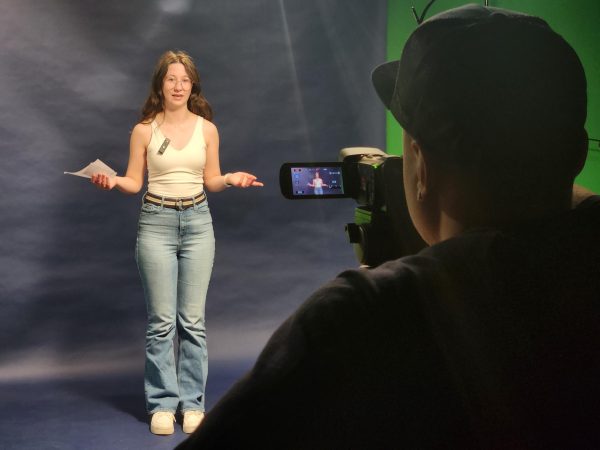Research and creative arts symposium goes online
On April 20, the Park University Creative Arts Symposium was held virtually. According to Patricia Ryberg, Ph.D., the Honors Academy director and associate professor of biology, this is a venue for Park University students, both graduate and undergraduate, to submit the research they have done in the past academic year.
The symposium included independent study, classroom assignments and final projects, among others, and this was also open to all topics from art displays to scientific experiments.
According to Ryberg, this year is 15th annual student symposium and the first digital component to the event. The event has always been held face-to-face event at the Parkville campus.
Presentations were to be uploaded on April 20, giving students and faculty a way to view submissions at their leisure.
“Since this isn’t a live event this year, there won’t be specific times to view a presentation,” Ryberg said.
Jocelyn Clayton, a junior majoring in English, said she had not participated as a presenter before, but it was expected of her as a member of the honors program. According to Clayton in an email, “Junior year is the culmination of our research projects, and we are expected to present at symposium either spring of junior year or fall of senior year (depending on if you are doing primary research or not).”
Having been in symposiums before, Clayton said the biggest difference in the event being held virtually was the question session, as she was looking forward to getting feedback from her peers and professors if she presented in person. She said there were no questions this year since the presentation was not live.
“Typically, students are asked questions for about five minutes after they present their projects,” She said, “This year, we pre-recorded ourselves and submitted the video to Dr. Ryberg.”
Clayton said the symposium felt like another assignment she turned in with the movement online. However, she said she appreciates Park still holding the event in a manner that was best due to current events, even though it wasn’t in the format everyone would have preferred.
Clayton also said she was looking forward to watching her fellow honors students present their projects since they have been working on the projects for over a year.
“I will still watch their presentations, but it’s not the same as being actively in the audience supporting and applauding their presentations and all the hard work they’ve put in,” she said, “Instead, I’ll just have to send them a video of me applauding or a text to show my support!”
“In these last few weeks, I’ve been involved in other organizations that are trying to convert fully in-person events to an online format and I know that it’s super hard,” Clayton said. “Though it’s not what I would’ve wanted had we been on campus, I think that it’s an acceptable situation that still enables my project and research to be heard and seen.”
Henry Franklin, a junior majoring in history, said in an email that the big difference in having the presentations virtually was the stress in watching the presentation and feeling like he needed to go back and change every little mistake as opposed to doing it last year where he had just one shot at it.
Franklin said he was looking forward to the questions he would get about the project since he enjoyed his topic and wanted to hear people’s perspectives on it.
“I’d say it turned out pretty well. I wasn’t too stressed about it and I was able to share my passion for this project, so I’m happy with how it turned out” Franklin said.
Presentations can be viewed at advancing.park.edu/events/srcas/.
Your donation will support the student journalists of Park University. Your contribution will allow us to cover our annual website hosting costs, freeing up other funds for equipment, printing and training.





